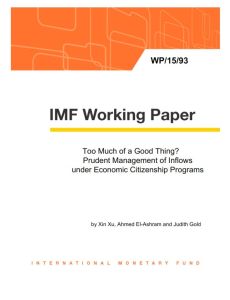Join getAbstract to access the summary!

Join getAbstract to access the summary!
Xin Xu, Ahmed El-Ashram and Judith Gold
Too Much of a Good Thing?
Prudent Management of Inflows Under Economic Citizenship Programs
IMF, 2015
What's inside?
What is a passport worth? It depends on the security and economic value a country’s economic citizenship program offers.
Recommendation
While not every country is blessed with abundant natural resources, a talented labor force or a good location for trade, all nations have a valuable asset in their legal sovereignty. Putting that sovereignty to work through setting up tax havens or leveraging trade access is nothing new, but selling passports or visas to the wealthy is a fresh growth area. While this enlightening report from International Monetary Fund economists Xin Xu, Ahmed El-Ashram and Judith Gold lacks discussion of the civic merits of exchanging citizenship or residency for money, it does offer guidelines for wisely managing these programs. getAbstract recommends it to policy makers and prospective applicants.
Summary
About the Authors
Xin Xu, Ahmed El-Ashram and Judith Gold are International Monetary Fund economists.
















Comment on this summary